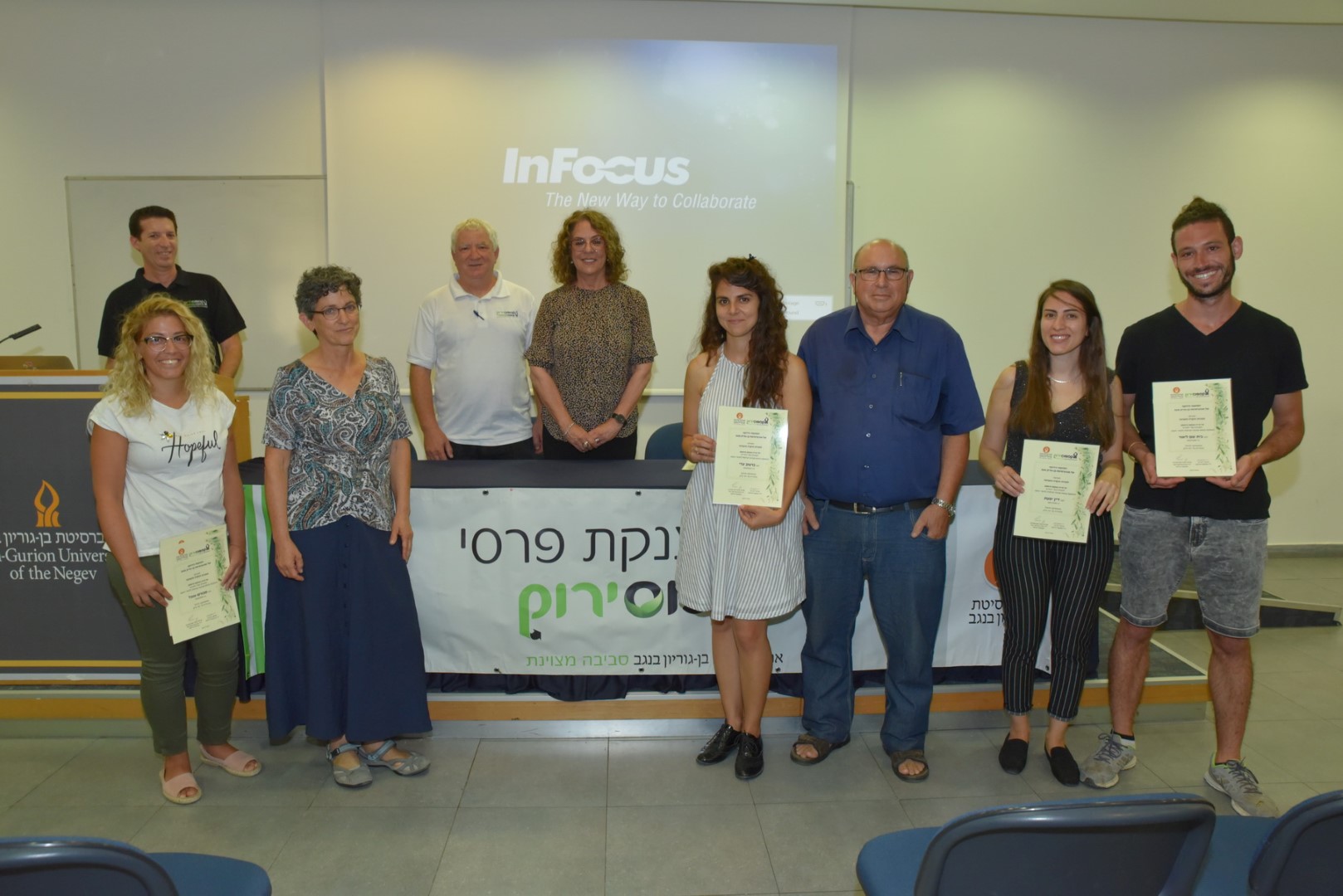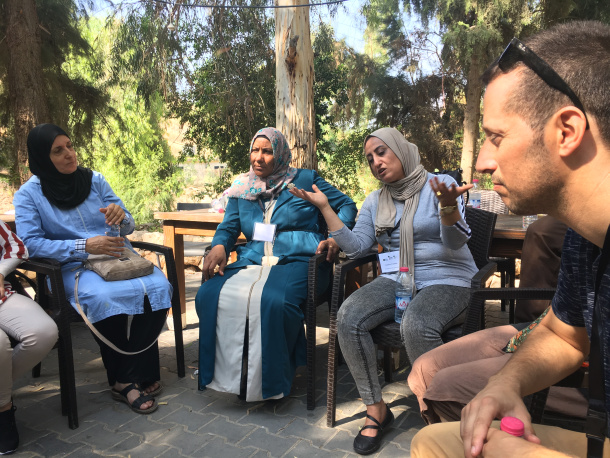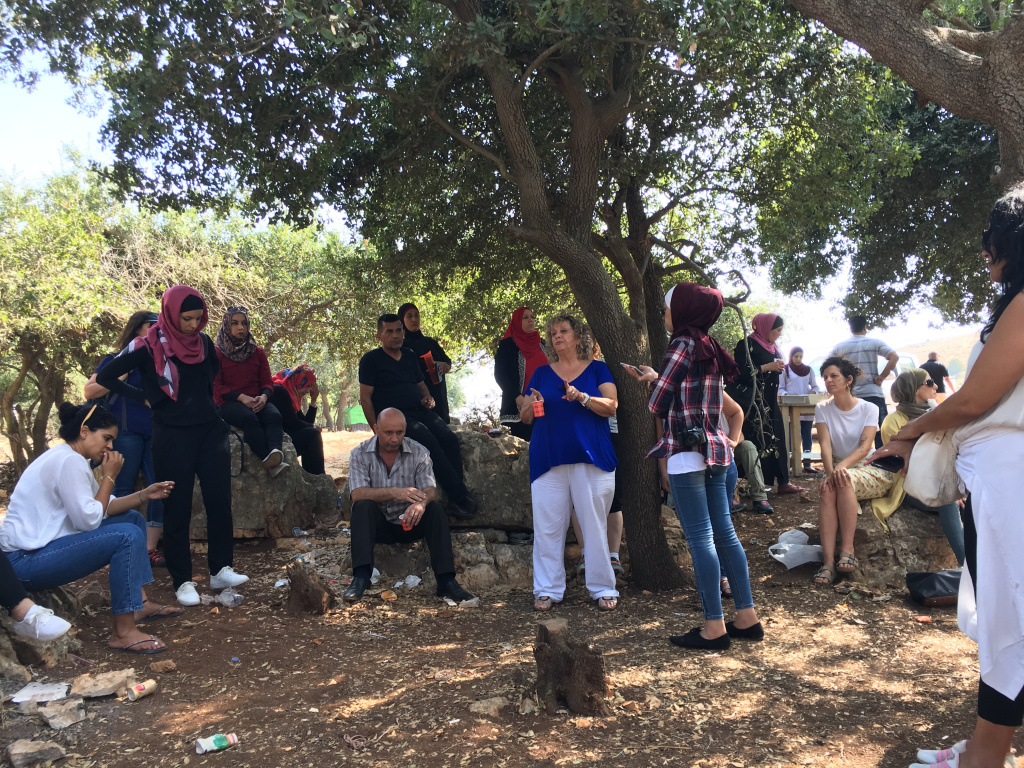The Final Project of seniors in the Department of Management at the Guilford Glazer Faculty of Business and Management GGFBM has recently been published in the professional magazine "Water Engineering", after last summer the project won first prize in the "Green Campus."

2018 Award ceremony for "Green Campus" for Outstanding Project. BGU President Prof. Rivka Carmi and Green Council Chairman Prof. Yaron Ziv (middle), and the students and instructor receiving the first prize
The student project “Ecological treatment of sewage" in the drainage basin of Nahal Hebron was recently published in the magazine "Water Engineering" in a special issue published for the "Kinneret Conference on Technologies and Projects in the Field of water" held in Dec., 2018. The project was run by students in the Department of Management at the BGU Guilford Glazer Faculty of Business and Management: Yifat Dayan, Kedem Talhan, Adi Bartov, Inbal Korsh, Lior Beit Shem, under the supervision of their instructor Rafi Glick.
The project implements solutions for the utilization of sewage water and the differences in elevation between the Hebron and Beer Sheva regions, as sources for the production of green energy, including electricity generation using hydroelectric systems and pumped energy and the generation of electricity through bio-gas and waste incineration. The contribution from energy production will enable reduction of pollution and diverting tens of millions of cubic meters of purified water and flood water to agricultural development and tourism uses.
During the course of the project, the students presented the subject at a cross-border meeting held at the Sharhabil Bin Hassneh EcoPark in Jordan with the participation of students from Israel, the Palestinian Authority and Jordan and in the presence of our liaison Dr. Shlomit Tamari of EcoPeace Middle East.


Contribution of the Negev Development Project:
The realization of the project for the treatment of the Meitar Basin wastewater is expected to contribute greatly to Israel in general and the Negev in particular. Alongside the ecological and environmental contribution of the project, in view of the danger facing the groundwater, its contribution to the development of the Negev is reflected in the social and economic-occupational aspects.
According to the implementation plan mentioned above, it can be seen that the use of renewable energies will generate future profits. In addition, tens of millions of cubic meters of sewage that today pollute the Negev and the aquifer have been reused for agricultural use, as well as some of the floodwater polluted by the sewage water and are now inoperable.
The clean water flowing into the stream will contribute greatly to the development of tourism in the area (as planned in the Beer Sheva River Rehabilitation Project), which may directly affect the prosperity of the Negev economy.
Implementation of the project may lead to increased employment in tourism and agriculture and the creation of new jobs following the expansion of infrastructure.
Purification of the drainage basin will also increase existing grazing areas and prevent animal mortality, which is an important source of income for the residents of the area.
The project was awarded the "Green Campus" award as the outstanding project in the field of environmental protection for the year 2011.
Tzafrir Rinat, the editor of the magazine "Water Engineering", who is also the environmentalist of Haaretz, noted the importance of academic students' involvement in environmental issues. The article is also featured on the front page of the magazine and in the front pages.
the article in Hebrew pages 42-45. https://www.dmag.co.il/pub/shinar/we.html

